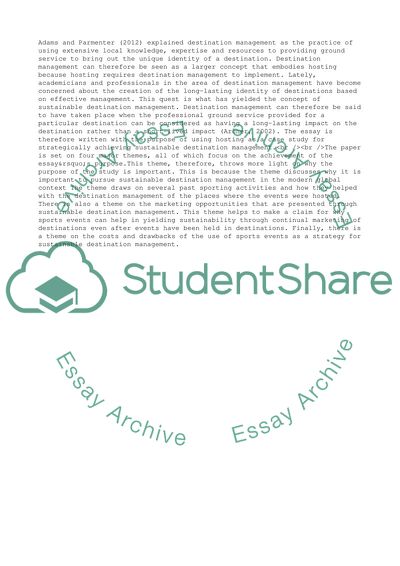Cite this document
(The Value of Hosting Events as a Strategy for Sustainable Destination Coursework Example | Topics and Well Written Essays - 1750 words - 1, n.d.)
The Value of Hosting Events as a Strategy for Sustainable Destination Coursework Example | Topics and Well Written Essays - 1750 words - 1. https://studentshare.org/management/1855503-assess-the-value-of-hosting-events-as-a-strategy-for-sustainable-destination-management
The Value of Hosting Events as a Strategy for Sustainable Destination Coursework Example | Topics and Well Written Essays - 1750 words - 1. https://studentshare.org/management/1855503-assess-the-value-of-hosting-events-as-a-strategy-for-sustainable-destination-management
(The Value of Hosting Events As a Strategy for Sustainable Destination Coursework Example | Topics and Well Written Essays - 1750 Words - 1)
The Value of Hosting Events As a Strategy for Sustainable Destination Coursework Example | Topics and Well Written Essays - 1750 Words - 1. https://studentshare.org/management/1855503-assess-the-value-of-hosting-events-as-a-strategy-for-sustainable-destination-management.
The Value of Hosting Events As a Strategy for Sustainable Destination Coursework Example | Topics and Well Written Essays - 1750 Words - 1. https://studentshare.org/management/1855503-assess-the-value-of-hosting-events-as-a-strategy-for-sustainable-destination-management.
“The Value of Hosting Events As a Strategy for Sustainable Destination Coursework Example | Topics and Well Written Essays - 1750 Words - 1”. https://studentshare.org/management/1855503-assess-the-value-of-hosting-events-as-a-strategy-for-sustainable-destination-management.


